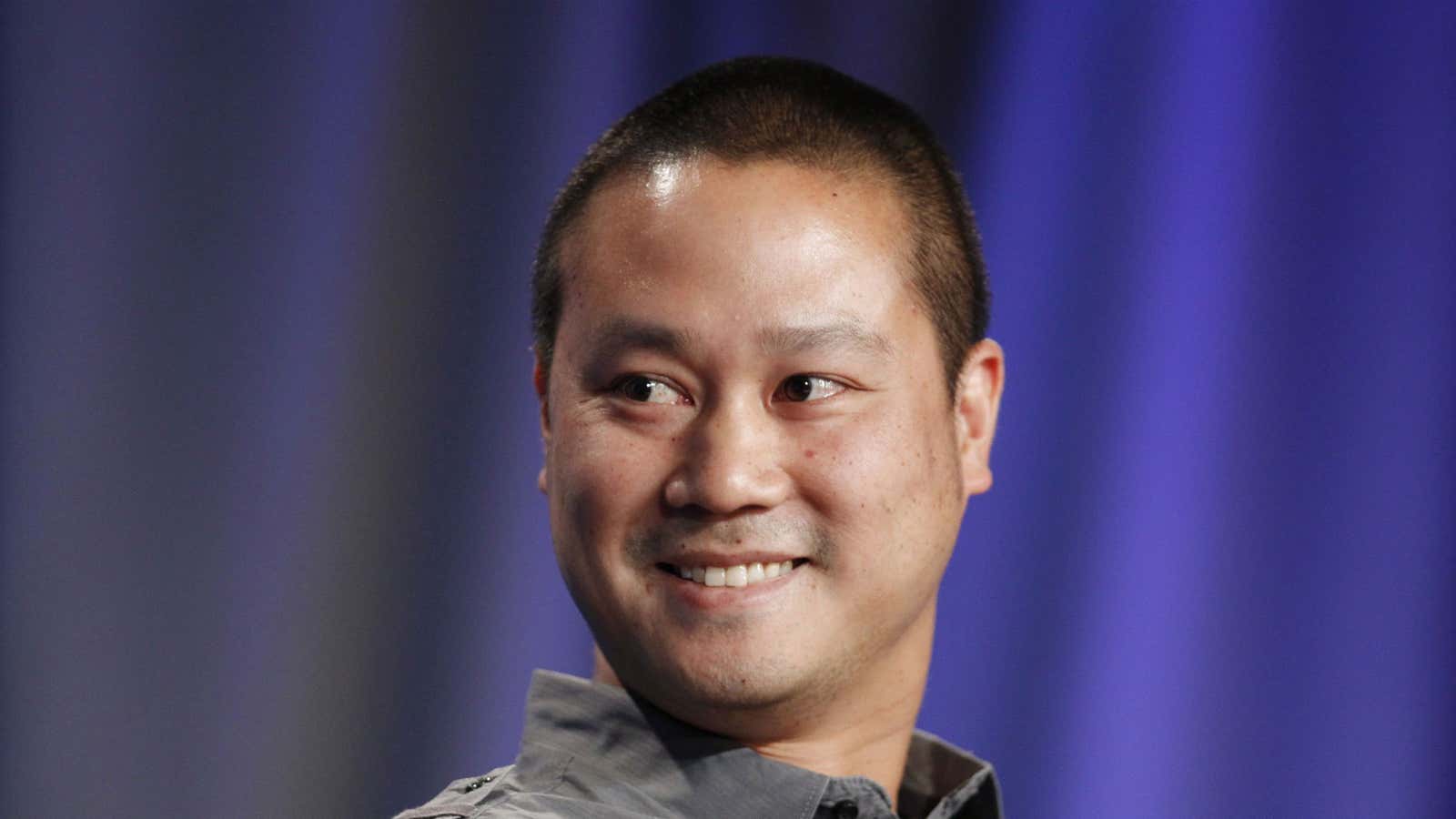Editor’s note: An earlier version of this piece incorrectly referred to Hilary Mason as Bitly’s CEO.
If you’re single and gunning for growth, join a company that’s run by an unmarried CEO—or become that unattached leader yourself.
Single chief executive officers, on average, run companies that are “smaller, younger, and potentially faster-growing,” according to Wharton School finance professor Nikolai Roussanov and Pavel G. Savor, a Temple University assistant professor of finance who published a study on a sample of 1,500 CEOs—of which 84% were married—titled “Marriage and Managers’ Attitudes to Risk.”
The research found that single CEOs also tend to invest more in research and development, in capital projects, and in acquisitions than their married counterparts, while leaders who have husbands or wives tend to be more cautious in business decisions.
Among the eligible bachelor CEOs: Tony Hsieh of Zappos, plus German-French investor Nicolas Berggruen and Tata Group’s Ratan Tata, who has flirted with marriage four times.
“A person’s individual characteristics and … individual life cycle matter for the decisions that they make on behalf not of just their families [or] themselves, but also on behalf of the firms that they lead,” Roussanov said in a Knowledge@Wharton interview.
Single CEOs make “decisions that are more far reaching” and don’t let competition or other warning signs slow them down. “If risk increases, married managers seem to scale down investment while single managers don’t seem to do that,” Roussanov told Quartz. He and Savor did not delve into other management decisions like hiring staff or creating a corporate culture, preferring to focus on measurable financial details and decisions.
The research does not look into divorced executives, partly because it was difficult to, but shows real differences in the risk-tolerance levels of married and single CEOs. How much difference? A company headed by an unmarried executive shows stock-market return volatility that is 3% higher and invests 10% more on average, in capital expenditures and research, than those headed by married executives.
“The economics of marriage” may contribute to single CEOs choices of riskier decisions, Roussanov said, noting that success and wealth matter “for your prospects.” He also noted “evolutionary biology that suggests that single men in particular are more aggressive and are willing to take more risk.”
The love is reciprocated: it’s not only that single CEOs end up taking more risks on behalf of their company, but, the researchers found, “riskier firms prefer single CEOs, who are more willing to engage in risky projects.”
